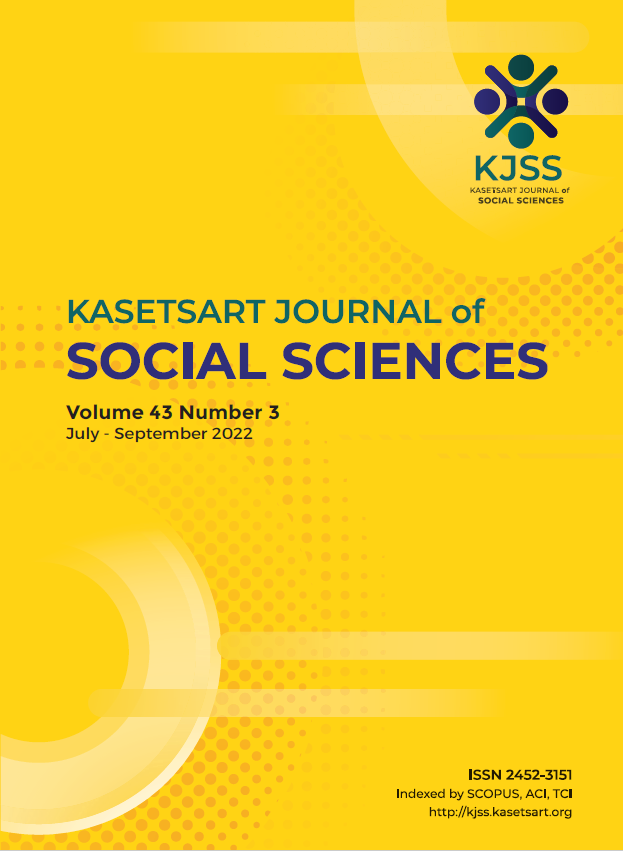The rural constitution for sustainable Thai rural community development
Keywords:
community democracy, participatory public policy, rural community, rural constitution, sustainable developmentAbstract
A rural constitution is a community rule which has been issued in accordance with the general will and agreement of the local people. Its purpose is to seek the cooperation and participation of community members in solving the problems of the community. This research focused on the development of a rural constitution of the Thai rural community, namely, the Banyang community in Wat Bot district in Phitsanulok province, the Lower Northern Region of Thailand. It aimed to search for the model of rural constitutional process for the sustainable development of Thai rural community. A participatory action research approach was applied within the community to observe and participate in the process of developing the rural constitution. The formation of the rural constitution of Banyang Community was initiated by the local and community leaders and evolved from the village rules and developed to be the accepted rural constitution at the sub-district level. The development and implementation of the rural constitution was supported by the Rural Constitutional Council of Banyang sub-district, which is comprised of the local and community leaders, the representatives from the villages, social groups and local organizations. The important factors that were identified as drivers of the sustainable development of the rural constitution and self-governance of the Banyang community were: strong local and community leaders, and the social awareness by the local people of the community’s problems.
Downloads
Published
How to Cite
Issue
Section
License

This work is licensed under a Creative Commons Attribution-NonCommercial-NoDerivatives 4.0 International License.
This is an open access article under the CC BY-NC-ND license http://creativecommons.org/licenses/by-nc-nd/4.0/










